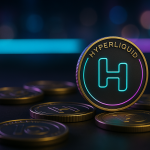Since its inception in 2015, Gnosis has established itself as an innovative decentralized prediction market that harnesses the Ethereum blockchain. Under the leadership of Martin Köppelmann, Stefan George, and Dr. Friederike Ernst, the platform encourages developers to deploy their applications within its ecosystem.
The Mechanics of Gnosis Tokens
Gnosis operates with a unique dual-token system comprising Gnosis (GNO) and OWL tokens. GNO, the primary token sold during initial coin offerings (ICOs), serves as a staking instrument for generating OWL. The quantity of OWL granted aligns with the duration of staking and the prevailing market supply.
The platform’s sophisticated architecture is segmented into three layers—Core, Service, and Applications—each offering distinct functionalities ranging from foundational smart contract support to consumer-facing applications developed by external parties. GNO’s primary role within this structure is to facilitate the creation of OWL tokens, which are integral for fee payment on the platform.
Market Position and Token Valuation
As prediction markets gain traction, Gnosis and its GNO token see an uptick in demand, although investor caution remains due to market volatility. With a market cap positioning at 141st, Gnosis Coin exhibits a notable trading volume and a finite supply cap of 10 million tokens.
Acquiring GNO Tokens
For interested parties, GNO tokens are accessible for secure purchase on Binance, the leading cryptocurrency exchange by volume. The process involves simple registration, fiat currency transfer, and transaction execution through a variety of trading pairs. In addition, Binance offers the flexibility of market value purchases as well as limit orders for those seeking specific price points.












